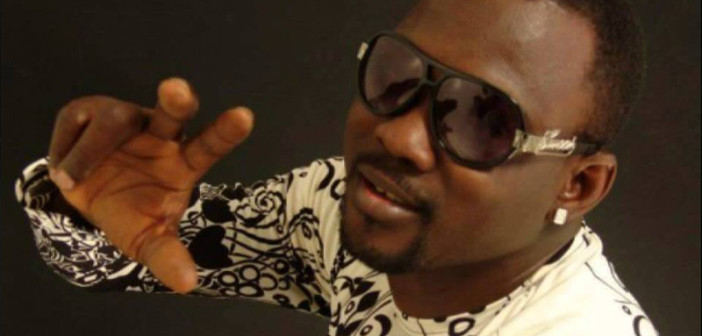It has been 30 straight years since the Fuji star, Wasiu Odetola famously known as Alabi Pasuma has been on the stage as a musician. This October, Pasuma will celebrate his three decades of non-stop music. Below is the full interview conducted by Thisday in Lagos Nigeria on his 30 years journey.
What was your childhood like?
I was born to the family of Odetola on the 27th of November 1967. My dad used to be the general manager of a company in Apapa, while my mum was a trader. But before she started trading, she used to be an actress. I attended Muslim Mission Primary School and proceeded from there to Nigerian Model High School for my secondary education which i finished in 1984 and I started my musical career immediately. My childhood was rough and tough. You know if you are born and raised in Mushin your lifestyle won’t be like that of the person born in Lekki or Ajah. It was that bad such that when you meet a girl and you tell her you are from Mushin, she’ll run away from you.
How was growing up in Mushin like?
It was fun and crazy. I grew up living in one of those old tenement bungalows that people called face-me-i-face-you. The house is still there at Number 37, Asofihan Street, Olorunshogo. And you know what kind of marital life that exists in a place like Mushin. My mum and dad had a good relationship, but somehow, they divorced. I remember that before my mum and dad got separated, we stayed at a house on Gbenle Lane, Olateju Mushin. I remember very well that my mum and dad got separated when I was just a 10 year old boy and I was in primary four at that time. I am the only child my mum had for my dad, so you can imagine what that means if I must survive and become somebody in life.
So what moment did you share with your mum in those days?
Oh! We had a lot. But I will talk about the kind of support I was given to her. She was a trader and I used to help her with the fried fish she was selling. There was this cinema close to our house and I used to be the one carrying the fried fish into the cinema to sell. I’ve also sold fan ice before with my bicycle just to support her. Besides that I know my mum was a loving and caring mother.
What else did you do during your growing up years?
I did quite a lot o, there’s a place in Ojuwoye Mushin where I used to be a wheel barrow pusher helping traders to convey their goods. I was also a bus conductor at some point too. We used to ply Mushin to Oshodi and Iyana Ipaja to Agege. On Saturdays and Sundays I’ll work from 4am to about 2pm, and during the week we worked after school hours till about 8pm. All through this period I was just moving on without thinking about anything.
Now, you’ll be celebrating your 30th year on stage this year, how does that make you feel?
Honestly, words can’t describe the feeling I have. I remember five years ago when we celebrated 25 years on stage, it was great, and now we are already talking of my 30 years on stage. All I can do is give thanks to God and continue to make evergreen music. The event to celebrate it would be packaged by AO21 media led by my manager Afolabi Oyekoya, and I can assure my fans that it’ll be great as ever.
Really, how did music begin for you?
I started my musical career when I was in secondary school, and back then the person that inspired me to go into music was King Wasiu Ayinde Marshal. He released an album then titled Talazo ‘84, and that was the point I felt this man has done a wonderful job, and deep inside me I felt I could do more.
So back the days I would gather some of my friends together in school to sing and from then on after I finished my secondary school (Nigerian Model High School, Idi-Oro) education in 1984, I decided to go into music fully. Though, my mum and dad wanted me to further with my education, but I wanted to sing and that was how it started.
So from 1984 to 1989, we used to play at various hotels in what we call back then “Jump”. I started from Temiogbe Hotel very close to my area in Olorunsogo, then later moved to Chicago Hotel in Mushin, and the in the early 90s, I moved to Africana Hotel at Ojuelegba, then to Chroma Hotel at Ebute Metta, then also at Stadium Hotel Surulere, Ariya Hotel at Jibowu.
Then, in 1993 a man called Eru Owa came to me that he wants me to record a studio album for him and I was like I can’t do it, because I’ve not done it before, but he insisted and urged me to try it out, so we signed an agreement, got into the studio and gave birth to my first ever album titled recognition
Then we did a follow album the following year titled Choices. Then afterwards, myself and my back-up singer called Shina created one slang called Orobokibo and when I came back from Mecca in 1995, I did a live performance that went viral. It was titled Hamburger and that same year we recorded my third album titled Orobokibo and that was the album that really blew the brand PASUMA, and also gave me my first award as the FMA Best Fuji Artiste of the year.
I also won the AMEN Awards consecutively in 1996, 1997 and 1998. It was also in 1996 that Benson and Hedges came to me and i won their awards also for 3 straight years. So after much prayer and struggles, I got my first UK tour in 1999 and from there on it’s been a success story and am glad to have been alive today.
You recently released 3 hip hop songs, why?
It’s been something that people have been looking forward to from me. So I felt this is the right time to really push it out so that people would see that I’m still very much around. And you know I’ve been with the hip hop folks for a very long time. So I discussed with my manager Afolabi Oyekoya and my team, and we decided that this is the right time to do it. At the moment, I’ve dropped three singles titled “Abo”, “Omo Olope” and “Oti clear”, and subsequently before the album drops, I’ll have a couple of notable collaborations on the album. Already, I’ve shot a video for the first single “Abo” directed by Clarence peters.
Would this hip hop album take you away from the mainstream Fuji music?
No! It’s not going to take me away from Fuji at all. I’ll still remain a Fuji musician. It’s just something to make me stand out from other Fuji artistes and for my fans to see another side of me. Don’t forget that I’ve been the first Fuji artiste to collaborate with hip hop artistes, as far back as 1997 with the “Remedies” on the song titled“Jealousy”.
Do you think your core Fuji fans would accept you doing a hip hop album?
They’ve even accepted the singles as their own and they are demanding for more. I think they really understand what I’m trying to do, and it’s not like am moving away from Fuji music at all.
After the hip hop album, when would you drop your next Fuji album?
My fans know that customarily my album drops every December, and by the grace of God we’ll drop another album this December too.
Let’s talk about the challenges you have faced as a Fuji Artiste?
There were actually a lot of challenges, but like the saying goes, if you suffered for 20 years, and just taste fortune for 6 months, you’ll forget all about your years of suffering. In my case, the challenges were so much that I can’t even remember all. There were times that your band members would say that they don’t want to play for you because you don’t pay them well. At times you’ll be waiting for them to turn up at shows they won’t turn up and you’ll end up being the only one to play with the keyboard as a backup. In some instance, the vehicle transporting your instrument to a show will breakdown and you’ll get to the venue late, and the celebrant would shout at you or even tell you to refund his/her money. There have been ups and downs really, but thank God it’s not like that anymore.
Back then, it was very difficult for people to accept Fuji music, what were the things you think you did to change that?
We really didn’t do anything much, I just kept at what I was doing, and probably because I pray a lot to God he rewarded our efforts. And of course I didn’t lose focus through thick and thin.
In the last 20 years, has there ever been a time that you thought of quitting music?
Yes, that was in the 90s. I remember going to a show where they fought, destroyed my instruments and injured a lot of my boys, so when I got back home, I decided not to do Fuji music anymore, but one of my very good brothers “Nene Jamiu” kept on encouraging me and he even bought a new set of instruments and took care of my boy in the hospital. So he really encouraged me and I can boldly say he’s the one that didn’t allow me to stop music.
But if you had stopped Fuji then, what else would you have done?
I don’t know, I probably would have gone back to school to go and continue from where I stopped.
What’s the meaning of PASUMA?
the guy that gave me the name said it’s a medicine you use that makes you stronger when you are weak, more like a pain reliever, so I applied it that if you listen to my music it would give you energy an also make you stronger.
Why you are not married?
I had all my children out of wedlock, and really i could have been married to Ayo Adesanya when I wanted to settle down, but it didn’t really work. And personally when I was younger, I always saw it as enjoyment, I didn’t really think about marriage, but now I think I need it and am sure it will happen very soon. But let me tell you this that I am a good father, because I try as much as possible to take good care of my children, give them good education and unite them.
Let’s talk about you as a lover of sports?
Before I started as a musician, I wanted to be a footballer, because I used to play football when I was much younger, I played for Abuede at Shogunle alongside Fatai Atere and Jonathan Akpoborire, and I was even part of the team that was supposed to go to the first edition of the FIFA CODAC games in 1985. I was invited to camp, but unfortunately I was dropped.
How would you describe your taste for fashion?
I dress to suit myself, and most times my mood determines how I’ll dress, but really when I am going out for events I often dress to kill because people want to see you well dressed, and I have a lot of boys around me that’ll tell me what is in vogue and I thank God I have the stature to carry it always.




